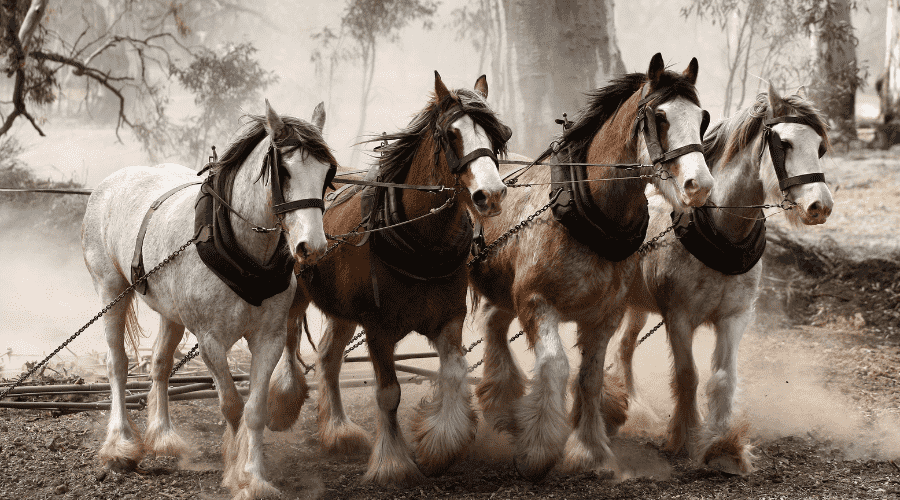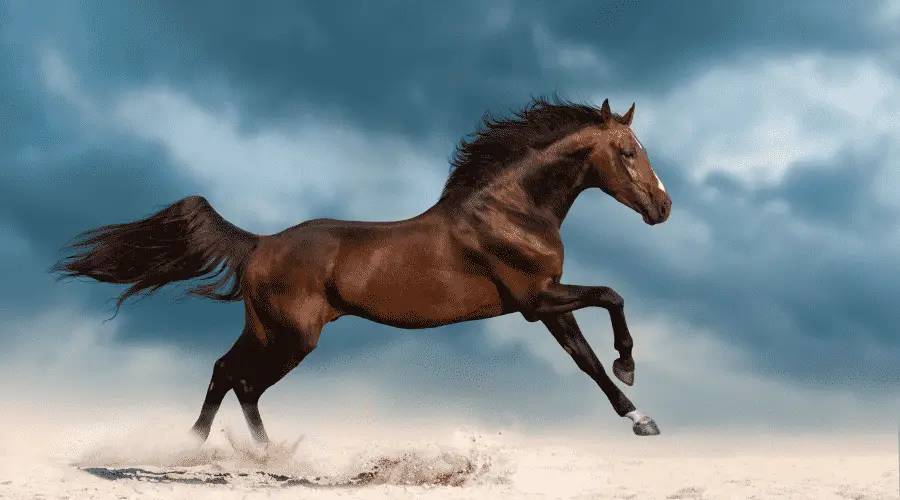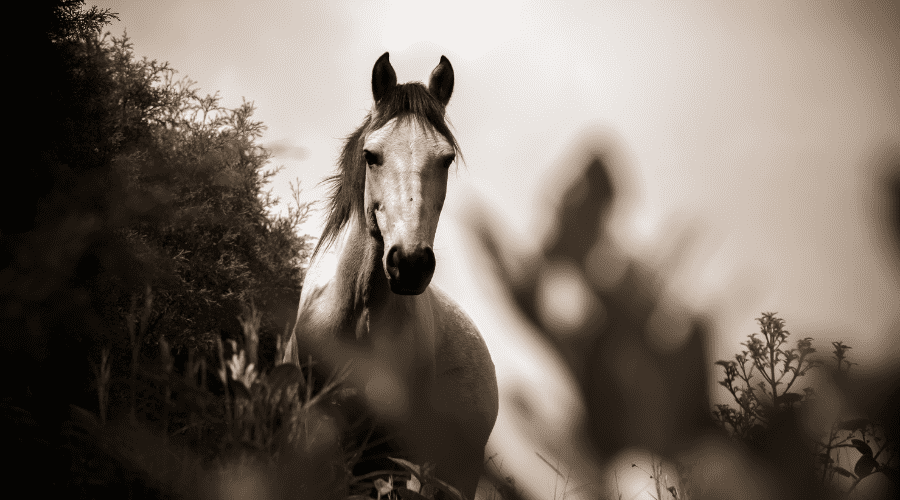Humans have always regarded horses as beloved pets and indispensable working animals. Horse fans sometimes wonder, whether they are seasoned riders or are just enthralled by these gorgeous animals: How long do horses live for? In this comprehensive article, we will delve into the intricacies of horse lifespan, exploring factors that influence it, differences among breeds such as Clydesdales and Arabians, and how to ensure your equine friend enjoys a long and healthy life. Let’s begin!
Average Horse Life Expectancy
Let’s start with the basics. The average life horses vary, but it typically falls within the range of 25 to 30 years. However, several factors can significantly impact a horse’s lifespan.
Factors Influencing Horse Lifespan
- Nutrition: Adequate nutrition is paramount to a horse’s longevity. Horses require a balanced diet that meets their nutritional needs, with access to clean water, quality forage, and appropriate concentrates. Nutritional deficiencies or excesses can lead to various health issues that can shorten a horse’s life.
- Healthcare: The wellbeing of a horse must be regularly maintained through veterinary treatment. Routine vaccinations, dental care, deworming, and early detection of illnesses play a crucial role in prolonging a horse’s life.
- Exercise and Activity: Their health depends on regular physical activity and mental challenge. Without enough activity, stalled horses may have health issues like obesity and hip difficulties.
- Breed: Different horse breeds have varying lifespans. While the average lifespan is around 25 to 30 years, some breeds tend to live longer, while others have shorter lifespans.

Clydesdale Horse Lifespan
Clydesdale horses are known for their immense size and strength. These gentle giants are often associated with heavy work and, more recently, iconic appearances in parades and promotional events. But how long do Clydesdale horses typically live?
Clydesdales have a lifespan similar to the average for horses, typically ranging from 25 to 30 years. However, their longevity can be influenced by factors such as genetics, healthcare, and living conditions. Proper care, including regular vet check-ups and a well-balanced diet, can help ensure that your Clydesdale companion reaches the upper end of their life expectancy.
Also Read: Differences between a Donkey and a Horse: Exploring Donkey and Horse Matting
How Long Does an Arabian Horse Live
Arabian horses, on the other hand, are known for their endurance, grace, and unique physical characteristics. They are one of the oldest horse breeds globally, with a rich history dating back centuries. But do their storied origins have any bearing on Arabian their lifespan?
Arabian horses often enjoy a slightly longer lifespan compared to the average horse, typically living between 30 to 35 years. This exceptional longevity can be attributed to their hardiness, adaptability to various climates, and genetic factors. Arabian horses are known for their strong immune systems and resilience, making them well-suited for a longer life with proper care.
Extending a Horse’s Lifespan
Ensuring your horse reaches its maximum lifespan requires diligence and care. Here are some essential tips for extending your equine friend’s life:
- Proper Nutrition: For help creating a balanced diet suited to your horse’s age, activity level, and health state, speak with a veterinarian or equine nutritionist.
- Regular Veterinary Care: Schedule annual check-ups, dental care, and vaccinations. The effectiveness of treatment can be significantly impacted by early diagnosis of health problems.
- Exercise and Mental Stimulation: Provide ample opportunities for physical exercise and mental stimulation. Turnout time in a pasture, riding, and engaging in activities like trail riding can help keep your horse healthy and happy.
- Maintain a Healthy Weight: Horses frequently struggle with obesity, which can result in a number of health issues. Keep an eye on your horse’s weight and modify its food and activity routine as necessary.
- Good Hoof Care: Lameness and other problems connected to the hoof can be avoided with routine trimming and shoeing by a qualified farrier.
- Stress Reduction: Minimize stressors in your horse’s environment. Horses are sensitive creatures, and chronic stress can take a toll on their health.

Real-Life Stories
To truly appreciate the potential for horses to live long and fulfilling lives, let’s look at some inspiring real-life stories of equines defying the odds:
- Old Billy: Old Billy, a Shire horse, holds the Guinness World Record for the oldest horse ever recorded. He lived to an astonishing 62 years, a testament to the care and attention he received throughout his life.
- Methuselah: Methuselah, an Arabian horse, lived to be 49 years old. His longevity was attributed to excellent genetics, a balanced diet, and regular exercise.
- Mingo: Mingo, a Clydesdale, reached the age of 35. His dedicated owner ensured he received top-notch care, including regular veterinary check-ups and a spacious pasture for exercise.
Also Read: The Mythology and Folklore of the Brook Horse
Conclusion | How Long Do Horses Live
The lifespan of horse is influenced by various factors, including breed, nutrition, healthcare, and living conditions. While the average horse lives to be 25 to 30 years old, breeds like Clydesdales and Arabians may exceed these expectations with proper care. By following best practices in horse management, you can help your equine companion enjoy a long and fulfilling life, creating cherished memories along the way. Remember, each horse is unique, and the key to their longevity lies in understanding their individual needs and providing them with the best care possible.
FAQs
How Long Do Horse Live in Captivity?
With the right care and supervision, horses may survive in captivity for up to 25 to 30 years. Various factors, including breed, medical treatment, diet, and living circumstances, might affect an animal’s lifetime while in captivity. Providing horses with a balanced diet, regular veterinary care, and appropriate exercise can contribute to their longevity.
How Long Do Racing Horses Live?
Racing horses, particularly Thoroughbreds, often have a shorter lifespan compared to horses in non-competitive settings. On average, racing horses live to be around 15 to 20 years old. The intense training and racing demands placed on these horses can impact their longevity. However, some retired racing horses can live longer with attentive care and a transition to a less strenuous lifestyle.
What Is a Horse’s Life Cycle?
A horse’s life cycle consists of several stages:
- Foal: A horse is born as a foal and typically stays with its mother for several months.
- Yearling: At around one year of age, a foal becomes a yearling and starts to develop physically and socially.
- Adolescent: Horses between one and three years old are considered adolescents. They continue to grow and develop.
- Adult: Once a horse reaches the age of three or four, it is considered an adult. This stage typically lasts until around 15 years old.
- Senior: Horses aged 15 and older are considered seniors. Their care requirements may change as they age, and they may require special attention to health and nutrition.
How Long Do Thoroughbred Horses Live?
Thoroughbred horses, known for their racing prowess, have a relatively shorter lifespan compared to some other horse breeds. On average, Thoroughbred horses live to be around 15 to 20 years old. The demands of a racing career can impact their longevity. However, with proper care after retirement from racing, some Thoroughbreds can live longer and enjoy fulfilling post-racing lives.
You May Also Like:
10 Interesting Facts About Grulla Horses
Can Horses Swim? What Do You Think?
The Horse Soldier Bourbon Story and Gettysburg Connection
The Majesty of Friesian Horses: A Comprehensive Guide
Art of Horse Training: Techniques, Tools, and Business
